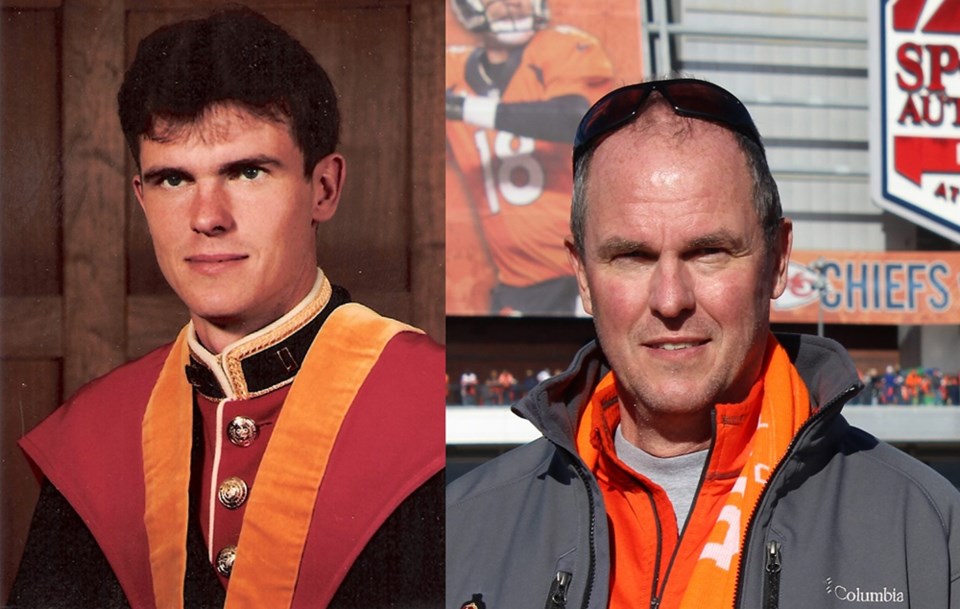Despite COVID-19, the Rotary Club of Innisfil is still vibrant, still welcoming guest speakers and holding well-attended meetings, although the meetings are now virtual via Zoom.
During the ongoing pandemic, members have heard about the Rotary Shelter Box program, the planned Virtual Terry Fox Run this September, and, earlier this week, met Steven Gable, retired from the military and now a consultant on radiological remediation and Unexploded Ordinance (UXO).
It was a fascinating look at a career that started on the family-run dairy farm near Carlisle, Ont., and took Gable from Cadets to the Royal Military College of Canada and a degree in civil engineering, to consulting on UXO recovery in locations that have included Sri Lanka and Ukraine.
“Every step on my career path has led seamlessly to the next,” said Gable, who comes from a military tradition that stretches back to the days of Admiral Nelson.
He graduated from RMC as a naval officer in 1984, serving first as a surface warfare officer, then as a marine engineer and a diver.
He was initially posted to Victoria and Halifax, but also served in England, Germany and Hawaii, earning his master's of engineering while overseas.
But when the Berlin Wall came down and the Soviet Union collapsed, he left the military and became a consultant in California.
His first job? Gable was called in to a facility making solid rockets for the Space Shuttle program.
“I slid right in, a perfect fit,” he said, noting it was a fascinating job.
In the late 1990s, Gable returned to Canada as a consultant.
Gable was part of a team in Ukraine, decommissioning Soviet military facilities. He not only enjoyed the culture of the area, he connected with a former Soviet officer, who acted as their host officer.
The two were the only military men involved and spent the evenings exchanging stories, leading Gable to conclude, “Military men all over the world are just the same."
Gable has worked around the world. He was called in to Sri Lanka, partnering with an Indian firm, after the 2005 tsunami dislodged mines dating from the earlier civil war and swept them into drinking water wells.
The mines turned out to be of various manufacture – U.S., UK, Chinese, Russian – all of which had to figured out to be disarmed.
“It took quite a bit of effort,” Gable said.
He was retained by the producers of a television show to assess safety issues related to a U-Boat sunk in 1942 between Boston and Halifax – and by the Canadian government to assess the land at Ipperwash, used as an artillery training ground during the Second World War, before the land was returned to the First Nations.
Gable was called in to assess conventional and chemical weapons dump areas located off Canada’s east coast, where First World War conventional artillery shells and cannisters of mustard gas and chlorine gas had been dumped on the ocean floor, at a depth of more than 60 metres.
In the past 100 years, the cannisters have begun to corrode and leak, having an adverse impact on fishing stocks in the area, and posing a potential hazard to drilling rigs.
“How do we deal with this?” Gable said. “The quantities are pretty excessive. That’s going to be an ongoing story. It’s not going away.”
In looking back and sharing his stories, Gable told the Rotarians that there is a saying that is close to his heart, as a former military officer: “Only carry what you need.”
Stories are fine, he said, but share them “and then move on.”
What’s really important is not the past, but the present and the people.
“To me, education has always been important. It’s a stepping stone,” Gable said, noting that he has kept in touch with his classmates at the RMC, even organizing reunions every five years. “What matters to me are the people I met and the people I keep in touch with.”



